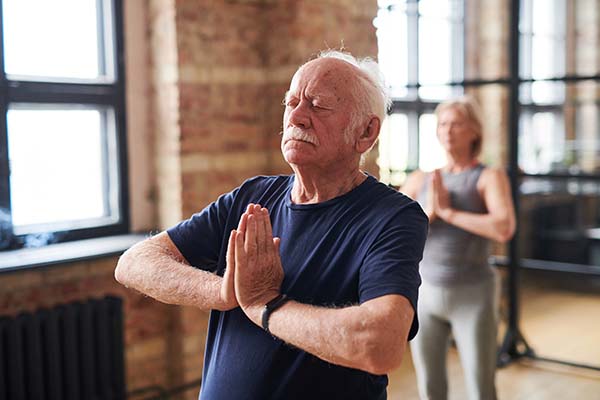
It is no mystery that maintaining a balance is essential in life. It's practical to balance everything you do, whether it's how you eat or how much time you spend doing daily errands. Similarly, the balance and stability you utilize to remain mobile in your own home are equally critical.
Maintaining or improving equilibrium will help minimize the likelihood of falling and being injured. Many factors, such as arthritis, vision problems, and equilibrium difficulties, will all have an impact on your balance as you age. Fortunately, daily physical balance exercises can help enhance anything from cognitive functions to the overall quality of life.
Regular balancing movements, such as yoga, tai chi, or a BEEP (balance-enhancing exercise program), can enhance both static and dynamic stability. Since our bodies often change as we age due to diminished body processes, we must do all we can to maintain and build strength to remain healthy. Here are a few basic exercises for increasing stability:
Balancing on One Leg- Spend 30 seconds standing on one leg, slowly raising your knee, and taking your foot off the ground.
Side Stepping- Do side shuffles through your home, making it more difficult by placing tiny objects in your way to step across.
Walking- One of the most important aspects of maintaining coordination is to build stamina. Walking works different parts of the body, including abdominal muscles that can help keep you grounded while doing everyday activities.
While fall hazards are predominately the motivation to work on your balance, there are several other benefits, including the following two:
Cognitive Performance- According to a new research report (Dunsky,2019), improving coordination through exercise has a beneficial effect on memory, self-mapping, and navigation. Only a few weeks of balance training could have a significant impact on your cognitive performance.
Quality of Life- According to the findings of another study (Halvarsson, 2018), following three months of participating in a balance-related program, participants saw a substantial reduction in the risk of developing depression due to fears of falling.
Some Things to Be Cautious of
Consider a few safety precautions before venturing out and making some challenging moves.
- Take your time. Progress takes time, and you will not see a significant difference overnight. Begin with less strenuous motions and gradually progress to more difficult ones as you gain confidence.
- Be cautious when balancing. Hold a chair nearby in case you need to take a rest or need something to balance on.
- Speak with your doctor. Before starting any exercise routine, check with your doctor to determine what is right for you.
Adding Extra Stability
Home aids will also help you improve your daily balance. Adding handles to walls where you need support can help increase safety. And ensuring that you have non-slip mats beneath your rugs will make a big difference. If you are concerned about staying stable on the stairs, you should consider installing a stairlift in your home. With balancing comes to unbalance; whether you are nervous or concerned about your stability when using your staircase, stairlifts will help put your mind at ease. Acorn offers many solutions for restoring balance to your life.
Overall, shifting your way of thinking and incorporating balance at home can boost your quality of life. Take some of these helpful hints with you to ensure that you stay mobile, healthy, and safe, especially at home.
Sources:
Dunsky A (2019) The Effect of Balance and Coordination Exercises on Quality of Life in Older Adults: A Mini-Review. Front. Aging Neurosci. 11:318. where doi: 10.3389/fnagi.2019.00318
Hafström, A., Malmström, E. M., Terdèn, J., Fransson, P. A., & Magnusson, M. (2016). Improved Balance Confidence and Stability for Elderly After 6 Weeks of a Multimodal Self-Administered Balance-Enhancing Exercise Program: A Randomized Single Arm Crossover Study. Gerontology & geriatric medicine, 2, 2333721416644149. https://doi.org/10.1177/2333721416644149
Halvarsson, A., Olsson, E., Farén, E., Pettersson, A., and Stahle, A. (2011). Effects of new, individually adjusted, progressive balance group training for elderly people with fear of falling and tend to fall: a randomized controlled trial. Clin. Rehabil. 25, 1021–1031. doi: 10.1177/0269215511411937

